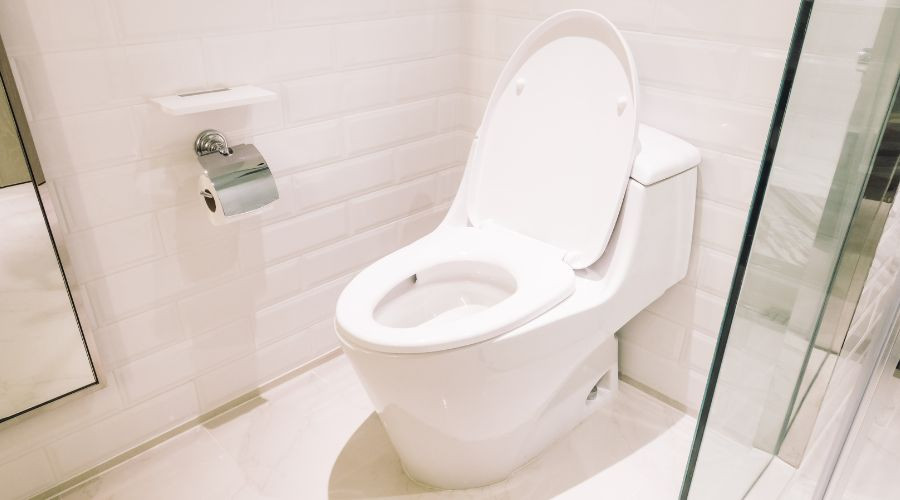How to Better Care for a Home’s Toilets
Proper toilet maintenance prevents costly plumbing emergencies and extends the lifespan of bathroom fixtures. Caring for a home's toilets involves simple yet effective practices that can save hundreds in repair costs.
Messy overflows and expensive repairs can be avoided through practical fix-it tips and maintenance techniques designed to reduce unpleasant surprises like clogged drains or plumbing mishaps. These quick bathroom fixes bring savings and reduce stress, transforming toilet troubles into manageable tasks.
Signs a Toilet Needs Repair or Replacement
 Toilet troubles often begin subtly before escalating into serious plumbing issues. Early identification can prevent water damage and emergency plumbing situations.
Toilet troubles often begin subtly before escalating into serious plumbing issues. Early identification can prevent water damage and emergency plumbing situations.
A constantly running toilet wastes gallons of water and drives up utility bills. Leaking around the base may indicate a failed wax ring or cracked porcelain, requiring professional evaluation. Frequent clogs, even with appropriate use, suggest structural problems or downstream plumbing issues.
Weak or incomplete flushes often stem from blockages or worn internal components. Mineral deposits can restrict water flow from the rim holes or trap. Cracks in the tank or bowl compromise structural integrity and typically worsen over time. An unstable or rocking toilet may point to a damaged floor flange or improper floor attachment. When repair costs near half the price of a new unit, professionals generally recommend toilet replacement with a more efficient model.
Old toilets—especially those exceeding 25 years—are usually less efficient and more prone to problems. Older models may use 3.5 to 7 gallons per flush, compared to modern high-efficiency models that use 1.28 gallons or less. According to the EPA, WaterSense-labeled toilets can reduce water usage by nearly 13,000 gallons annually.
Persistent issues like phantom flushes, recurring clogs, or cracks in the base signal that a toilet has reached the end of its useful life. Replacing outdated units with modern technology offers benefits such as improved flushing, dual-flush options, and comfort-height seating—delivering performance and water savings.
Tips for Preventing Toilet Clogs
 Clog prevention starts with monitoring what enters the toilet. Only toilet paper and human waste are designed to disintegrate in plumbing systems. Everything else risks creating clogs.
Clog prevention starts with monitoring what enters the toilet. Only toilet paper and human waste are designed to disintegrate in plumbing systems. Everything else risks creating clogs.
Common clog culprits include bathroom hygiene products. Despite their labeling, most "flushable" wipes fail to dissolve properly. Items like paper towels, feminine hygiene products, and cotton balls absorb water and clog pipes. Dental floss can entangle debris, forming larger blockages. A nearby waste bin helps ensure non-flushables stay out of the plumbing.
Household rules about proper toilet use reduce the risk of plumbing issues. A reminder above the toilet listing off-limits items can guide family members and guests. Choosing quick-dissolving toilet paper prevents excessive buildup. Childproofing toilet lids helps keep toys and foreign objects out of the bowl.
Excessive toilet paper use contributes significantly to clogs. Even thin paper can accumulate and restrict drain flow. Flushing in stages can reduce the chance of blockages—flush once after using a moderate amount of paper, then again if needed. Early signs like sluggish bowl clearance may indicate paper overload.
Placing a visual reminder about appropriate toilet paper usage can help visitors and children form good habits. Septic-safe paper dissolves quickly and protects plumbing systems, helping to maintain clear and functional drains.
How Sewer Lines Impact Toilets
Toilet problems may stem from sewer line issues rather than the toilet itself. Sewer line blockages can cause backups, slow drainage, and widespread fixture problems. Most mainline issues begin deep underground where household plumbing meets the municipal system.
Toilets often show the first signs of sewer trouble due to their large drain openings. Symptoms include slow flushing, gurgling sounds, or water rising unexpectedly. The American Society of Home Inspectors reports that about 30% of plumbing emergencies result from main sewer line obstructions.
Whereas toilet-specific clogs are localized, sewer line issues affect multiple fixtures. Tree roots can infiltrate through cracks. Grease buildup gradually narrows pipe passage. Aging clay or cast iron pipes may collapse completely. Camera inspections help identify such problems early, preventing emergencies and reducing repair costs.
Improper flushing habits contribute significantly to sewer line damage. Many flushed items travel far down the system before causing noticeable issues. Items like facial tissues, paper towels, and so-called "flushable" wipes remain intact and accumulate over time. Drain cleaning often reveals massive non-degradable blockages.
Avoiding sewer line clogs depends on mindful habits. The following should never be flushed:
- Wet wipes (even "flushable" ones)
- Feminine hygiene products
- Dental floss and hair
- Medications or chemicals
A healthy sewage system relies on responsible use. Flushing inappropriate items may provide short-term convenience but often results in long-term damage and expensive repairs. Treating toilets with care ensures a plumbing system that functions smoothly for years.
About All Clear Plumbing
All Clear Plumbing is a family-owned and operated plumbing company serving Essex, Passaic, Hudson, and Bergen Counties. They offer flat-rate pricing and 24/7 emergency service. Call them for bathroom plumbing services in Belleville, NJ.










